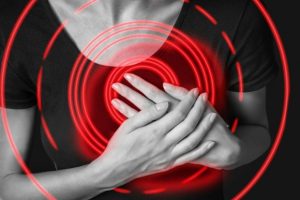
Lead researcher Dr. Andrea Ohrn explained, “Almost everyone knows what a heart attack is. When we hear about it, we think of chest pain and [emergency] medical care. But what’s less known is, many people experience heart attacks without knowing it — without ever receiving a diagnosis.”
The researchers used a standard pain sensitivity test and found that those who had a higher pain threshold were more likely to experience a silent heart attack. The link seemed to be stronger in women than men.
Although this phenomenon isn’t well understood, the researchers recommend that people should not only be aware of the common symptoms of a heart attack, but also the unusual or atypical ones, too. These include jaw pain, pain in the upper back, nausea, and heartburn-like symptoms.
Although it is known that symptoms of a heart attack in men and women differ, but it’s not yet completely clear how sex differences in pain tolerances affect one’s risk of experiencing different types of heart attack.
The goal is to educate people on the many different symptoms of a heart attack in order to prevent grave consequences when it occurs.
Related: Heart attack warning: Unusual signs and symptoms